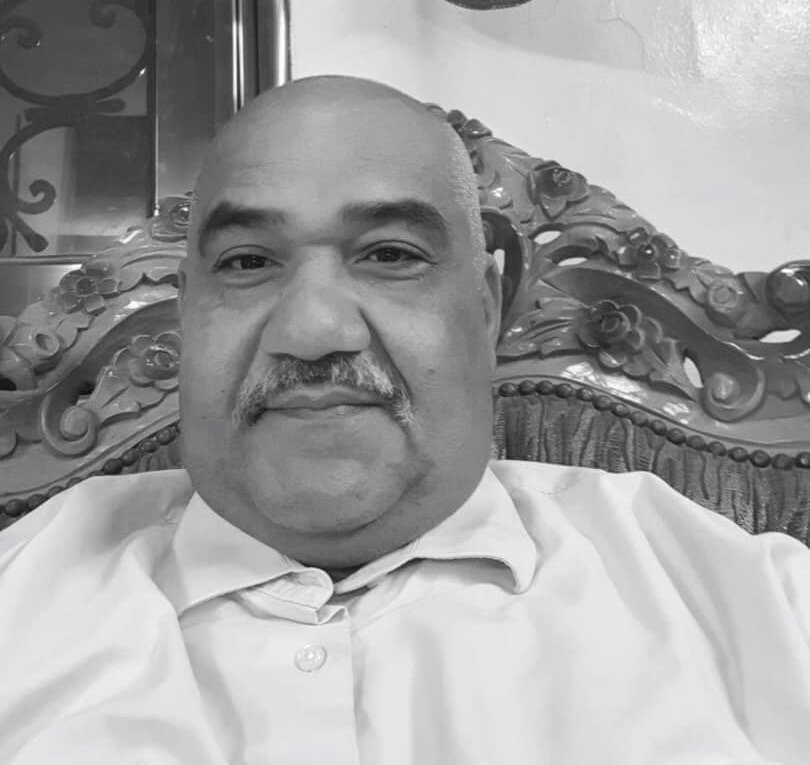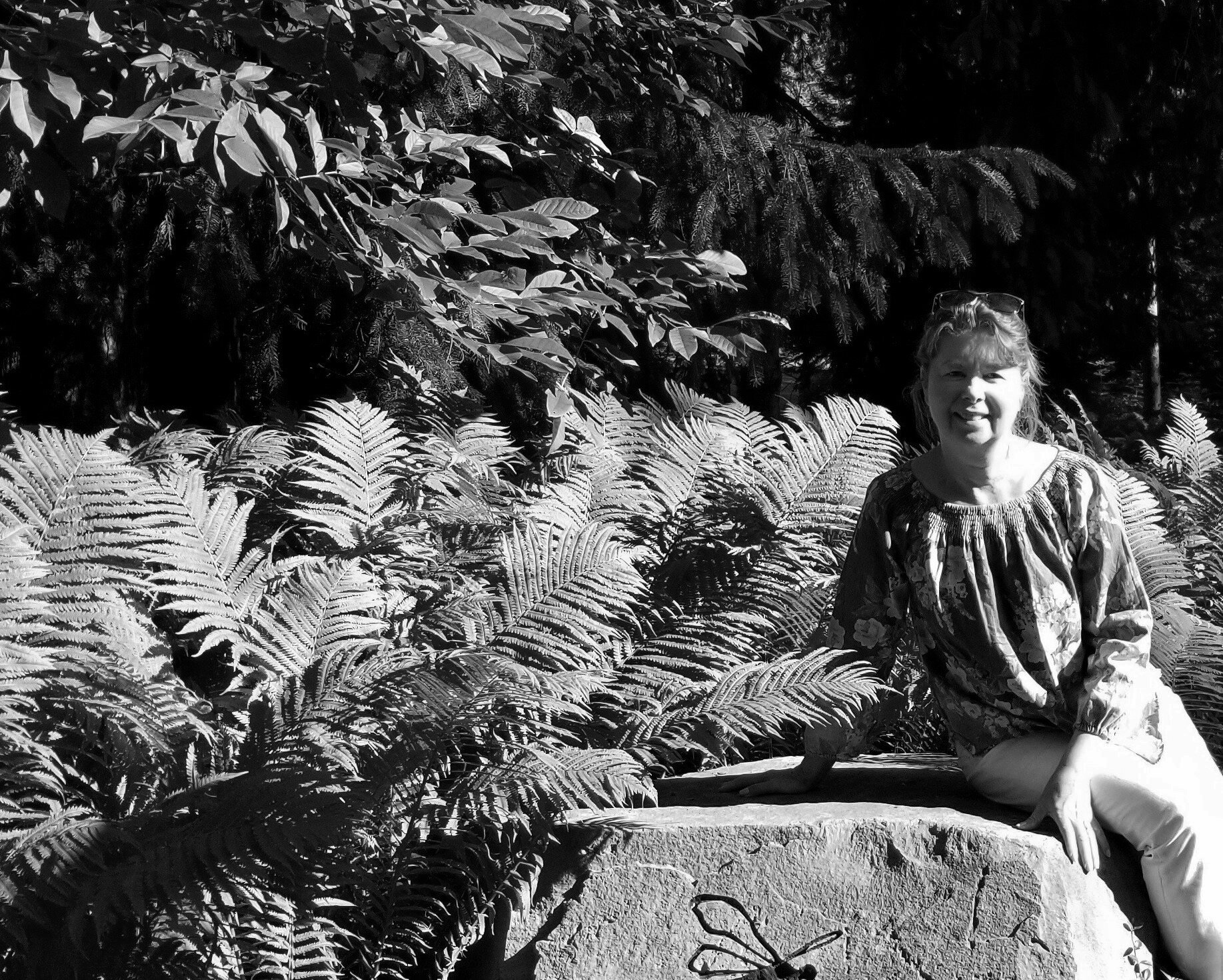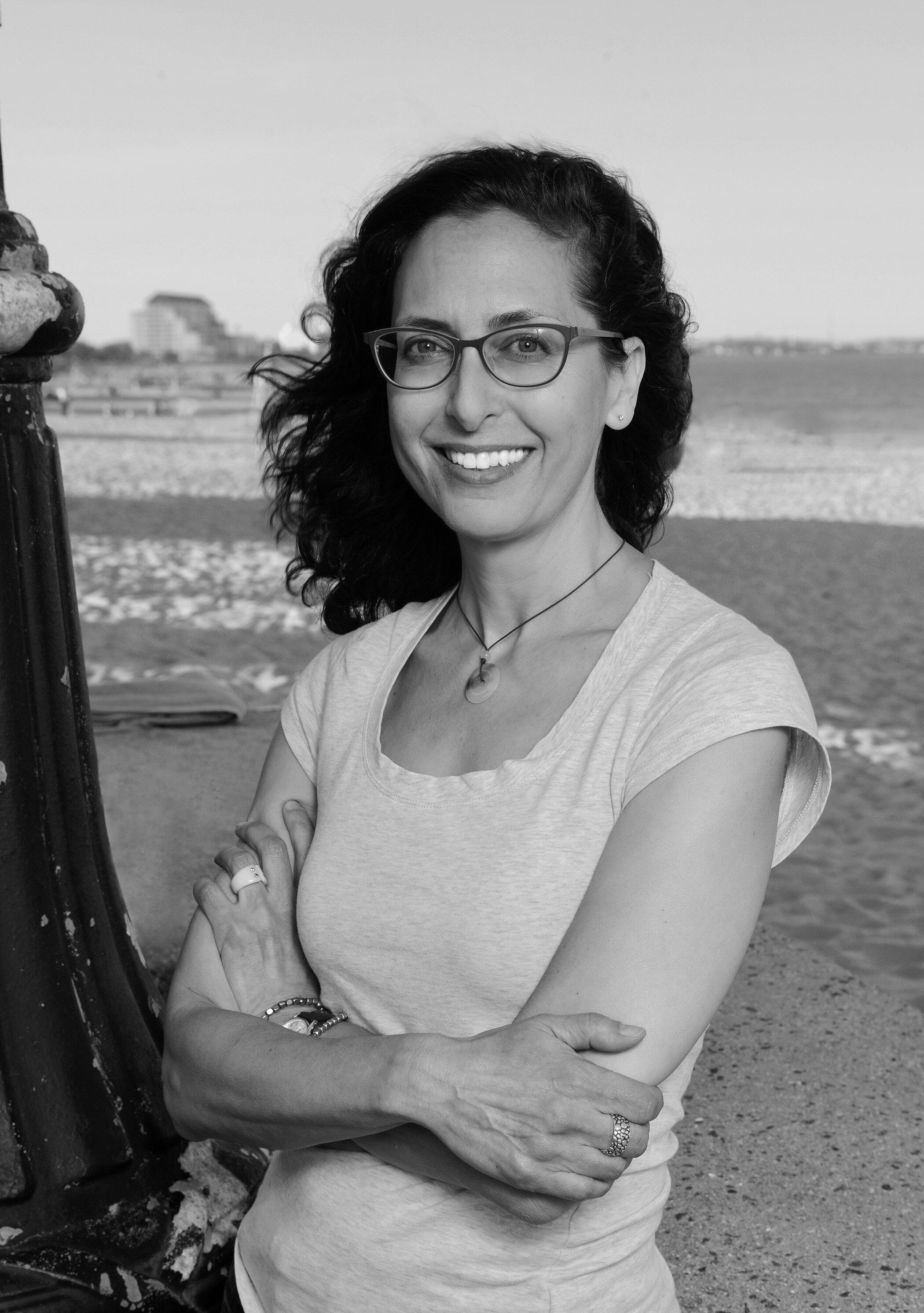An interview with Mike McDonagh
/“It’s very important that there’s an emphasis on being present and actually experiencing and writing what your ordinary mother is going through as she loses her children, as she loses her house, her farm animals, and ends up in a crowded camp. I think there needs to be more written about the people that are at a constant loss,” says Mike McDonagh. Mike worked for 34 years as a Humanitarian, first with Concern Worldwide and then with the United Nations. He is now retired in the West of Ireland.
How did you end up in humanitarian aid?
In 1983, I went overseas with the Irish NGO Concern Worldwide. I was working with the Ministry for Health, and at that time, the Government of Ireland had a mechanism where you could leave your permanent pensionable civil service job, work overseas for a couple of years and then return to your job. A lot of people went overseas to various relief and development situations for a couple of years and returned to their jobs. I am in the minority because I stayed overseas for 33 years.
When you reflect on your career, what was your greatest professional achievement?
To a large degree, my emphasis was always on humanitarian access at the very front where the situation was at its most difficult. I was with Concern for twenty years working on emergencies in Ethiopia, Sudan, South Sudan, Rwanda during the genocide, the Democratic Republic of Congo during the cholera epidemic, and in Sierra Leone, Liberia and Angola during the wars there. I spent two years in North Korea and a year in Zimbabwe and also did short stints in Honduras after a devastating hurricane and in Albania during the Kosovo crisis. When I joined OCHA, my emphasis remained on advocating for access and on funding interventions at the early stages of a crisis.
Tell me about the impact of your work.
The suffering was enormous, and the risks were high. In Angola, for example, our team were in the besieged city of Malanje where they were regularly shelled by UNITA. In Huambo, which was held by UNITA, we had a team that was regularly bombed by government aircraft, and in Kuito, both sides were literally across the street from each other. The tentative ceasefire was constantly broken and with heavy weaponry being used, the impact on civilians was appalling. Staying with the people was the right thing to do, but you know, it was always at the back of my mind that people, our staff, nurses, doctors, logisticians, engineers were at risk, and we did have incidents including a fatality and injuries. Belligerents on all sides cared little for civilians and aid workers. However, back in the day, in most cases aid workers were not deliberately targeted as seems to be the case in recent times.
What was your toughest moment?
I lost friends. I lost a colleague in Somalia, a young Irish nurse, on the road between Mogadishu and Baidoa. She was 23 years old. There was an attempted hijacking. She was shot twice. She died instantly. I was in charge of a team of 42 expatriates and a thousand national staff and to lose somebody so young, you know, in the prime of her life, a nurse assisting malnourished kids, kids with all sorts of diseases, was a very hard moment for me.
How did you cope with that?
I was part of a very good organization led by two remarkable priests, Fr. Aengus Finucane and Fr. Jack Finucane, who have both since passed away. They were very supportive, but it was on my mind for a longtime afterwards. We had to continue the work, to take the risks. It’s one of those things that you hope never happens again because you’re responsible for other peoples’ children. They come overseas and expect to go back to their parents who expect them to return safely.
What kept you going?
It was like a vocation and I changed countries quite a bit. I was in some of these countries at very interesting and historic times. I worked in a camp on the Jordanian Iraqi border in 1990 before the first Gulf War and up to a million guest workers from Kuwait were evacuated through this border back to countries like the Philippines, Sri Lanka and Indonesia. In Cambodia, after the Paris peace accord in 1991, enabled the refugees in Thailand to return home. I oversaw setting up the reception sites for them. I was in Somalia for a year when it was at its worst. The US and other nations intervened, and there was a period of great hope and then it all died with the shootout and Black Hawks down in Mogadishu. The nineties were a very violent period in Africa which saw millions of people die in Somalia, South Sudan, Burundi, Rwanda, DRC, Angola, Sierra Leone and Liberia. The continent was awash with weapons and child soldiers. Over 90% of the deaths were of civilians, there was no respect for women and children. What kept me going was my/our contribution of trying to alleviate some fraction of the suffering.
What did you enjoy the most about your jobs?
There was great camaraderie. I had wonderful teams of people, the Irish nurses, journalists along the way, UN colleagues, government officials, and even rebels I stayed friendly with. There was camaraderie especially during tough times. The positive part of the internet is that I can stay in touch with people that I met almost forty years ago. These friends I made along the way kept me going, and also the achievements of reducing malnutrition, vaccinating a whole population in a camp, of being able to stay with people knowing that our presence reduced the worst of the deprivations that might have happened.
What do you see as the major causes of humanitarian crises at the global level?
Conflict, weak governments, a proliferation of arms especially in the Sahel since the fall of Gaddafi in Libya has destabilized half a dozen countries. The West has a huge a responsibility for arming the likes of Saudi Arabia. The horror unleashed on Yemen and its civilians is appalling. There is a massive hypocrisy, the West arms Saudi Arabia and Gulf countries, they wreak havoc in Yemen and then the West turns up to fund the humanitarian fallout. Even Saudi Arabia is a donor. Syria has suffered terribly due to the emergence of ISIS and numerous powers are now involved including Russia, Turkey, the US, UK etc., all supporting different groups with little consideration for civilians on the ground. The five permanent members of the UN security council are the biggest arms exporters, for these countries, it’s about jobs, prestige, etc., but these weapons cause massive suffering.
You mention the lack of empathy. How can we create empathy?
The levels of suffering are high, the women, the kids, the elderly with nowhere to go. The whole world knows that this is going on, but how much news do you see about Syria on CNN, Sky News or BBC, etc.? You’ll see a bit of coverage, some condemnation, but you know, half a million people dead since 2014. Look at the horrific suffering of people in Yemen, the poorest country in the Middle East, and very little coverage, given the magnitude of the crisis. When there is little coverage, there is bound to be a lack of empathy. There needs to be more coverage.
How did you cope with the frustration of not getting attention on your advocacy efforts?
At times it was very frustrating. If you were to look at the situation in Angola, for example: A rebel group, a Maoist rebel group backed by the USA against the Marxist Angolan government backed by Russia. USA oil companies dealt with the government in Angola while Cuban troops guarded the oil installations for Angola. In the middle of it all, millions of civilians were under siege, tens of thousands of people were suffering from malnutrition. It was the cynicism, all sides, providing armaments, backing either the rebels or government, landmines from all sorts of governments. It just went on and on and on and all we were doing was trying to treat the symptoms whether it was people seriously injured, or malnourished kids as a result of towns and cities besieged. At times, it was like banging your head against a brick wall, but you felt that it was important to be with the people, and to try and alleviate some of the malnutrition and health issues. It was very frustrating at times but being able to alleviate some of the suffering helped greatly.
What do you think the international community can do to stop war?
My view would be that countries like Saudi Arabia should not be allowed to buy weapons, and the US, UK and France are arming them. You’ll probably find that when it comes to the humanitarian situation in Yemen, the US is the biggest donor, and ECHO is probably the second biggest, and the UK is probably the third, what hypocrisy. If you’re giving and selling weapons to the biggest culprit when it comes to the suffering in Yemen, and then you’re giving cheques to the UN and the NGOs to clean up the mess that you have actually caused as a result of the sieges, the bombings from the air etc. For me it’s about stopping the arms flow.
Tell me about a person or a situation you have encountered in your work that has had a profound effect on you and why.
The two Irish priests that founded the NGO Concern, which was founded at the same time as MSF during the Nigerian Biafran civil war in the late sixties. It was a horrific situation, the first televised famine. Those two priests, father Aengus Finucane and Fr. Jack Finucane had a huge effect on how I saw the issues, about being present, being at the frontline for the people, putting teams in to alleviate malnutrition, to provide health care, sanitation. These priests put the spine into me to be out there with the people. They had been out there themselves during the Nigerian civil war, in fact, Fr Jack was detained at the end of that war. He was released to the Red Cross and flown to Geneva in March 1970.
I want to ask you about stories. Tell me about the fiction books you’ve read set in humanitarian crises. A lot of books have been written about Africa in the nineties, but they’re not fiction, but I think they’re very interesting books to read about what was going on. There’s one by Scott Petersen called Me against my Brother about Somalia, South Sudan and Rwanda. Another great book about Africa in that period is by Keith Richburg called Out of America: A Black Man confronts Africa. I read Emma’s War which was written about Emma McClure, who was Reek Machar’s wife. She talks about being in the bush, coming under attack, being on the run, during the civil war in the late eighties and early nineties in South Sudan. She talks about the suffering, the risks, the adrenaline rush when running for your life.
While fiction has a role to play to get people interested, I am inclined to recommend to people curious about war and humanitarian crises to read the Scramble for Africa, read about the silly borders that were drawn, learn why countries divide up and actually go to war with each other. I am inclined to recommend real life novels and books that were written about Africa in the nineties.
In your view, what could stories do to help us raise awareness on humanitarian crises?
When it comes to humanitarian crises, I think it’s very important to emphasize that there’s a vast anonymous population that’s very often dealt with in figures and percentages, that’s very often written about and talked about on emails and in reports, but is rarely seen. I think it’s very important that there’s an emphasis on being present and actually experiencing and writing what your ordinary mother is going through as she loses her children, as she loses her house, her farm animals, and ends up in a crowded camp. I think there needs to be more written about the people that are at a constant loss. This can be a villager in South Sudan who has lost everything or a villager in north Syria who doesn’t know where their next meal is coming from and wonders why the world has forsaken them. What I would be looking for in fiction is greater emphasis and an empathy for the suffering of the millions of people that find themselves without a roof over their heads, who don’t know where their next meal is coming from, who don’t know where the next bomb is going to land. There needs to be more fiction, books, screen time about this. Presently I am not seeing any coverage of what’s going on in northern Syria, Yemen, Tigray in Ethiopia, South Sudan or North East Nigeria. Back in the day, one would meet a foreign correspondent in the middle of nowhere and see a story written days or weeks later. Today, almost nothing gets written or filmed.
What is your greatest hope for the people affected by humanitarian crises?
I hope and I am not so hopeful about this, but I hope that there’s more emphasis on access and presence, and people being on the ground than emails and reports and meetings. I honestly believe that there are vast numbers of aid workers who spend very little time where the situation is at its most serious or at its gravest and so my hope would be more emphasis on aid workers getting out there and not writing about the people or talking about the people or meeting about the people, but actually being out there. I must say my experience in north east Nigeria last year and the year before made me quite despondent about the lack of humanitarian presence in Borno in North East Nigeria. The UN had a fixed wing aircraft, 4 helicopters and IOM had established bases throughout Borno with very good accommodation and great IT. But despite all these enablers, I saw very few international aid workers and there was little oversight of operations. MSF were the clear exception. There was risk, aid workers had been kidnapped and killed. However, I felt that the new generation of aid workers had somehow come to the conclusion that responding to an email, attending a meeting or a teleconference was aid work and was much more important that getting on a helicopter and going to see the displaced people in the various towns across Borno.
If you were asked for one action that people out there can do help address the causes and consequences of humanitarian crises, what would that be? What is your call to action?
That there would be arms embargoes by all suppliers to civil wars and that there would be a robust UN presence on the ground that would report when arms are smuggled, would name the perpetrators, those who breach the ceasefire, the people that are dropping the bombs on civilians and would bring it up at the Security Council and embarrass these countries that are either supplying, that are dropping the bombs on buses, on schools, etc., in Yemen and Syria and other places. Robust presence reporting on the perpetrators that are responsible for the deaths of thousands of mostly innocent civilians.
- END -












